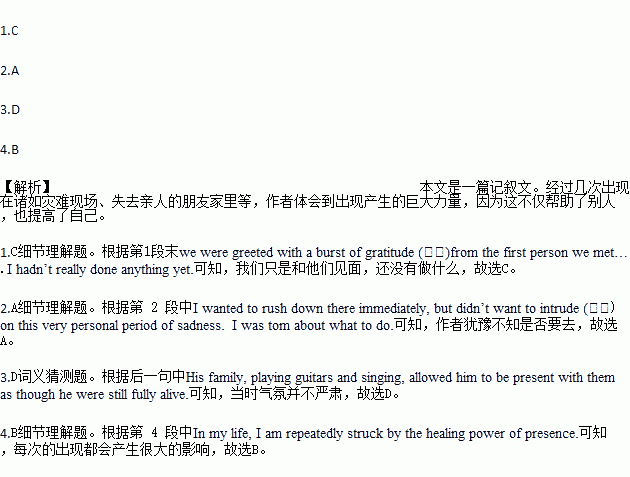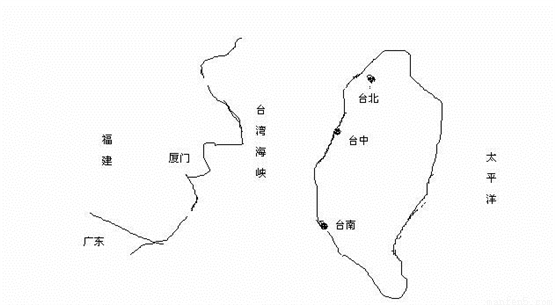题目内容
Recently I and other Red Cross volunteers met a group of victims from Hurricane Katrina. We were there, as mental health professionals, to offer “psychological(心理的) first aid” and I was struck by the simple healing power of presence. As we walked in the gate to the shelter, we were greeted with a burst of gratitude from the first person we met. I felt appreciated, but also guilty, because I hadn’t really done anything yet.
I first realized the power of presence many years ago when a friend’s mother passed away unexpectedly. I had received a call saying she had just passed away. I wanted to rush down there immediately, but didn’t want to disturb this very personal period of sadness. I was torn about what to do. Another friend with me then said, “Just go. Just be there.” I did, and I will never regret it.
Since then, I have not hesitated to be in the presence of others. Once I sat at the bedside of a young man suffering from the pain of his AIDS-related dying. He was not awake, and obviously unaware of others’ presence. However, the atmosphere was by no means solemn. His family, playing guitars and singing, allowed him to be present with them as though he were still fully alive.
In my life, I am repeatedly struck by the healing power of presence. In it, none of us are truly alone. It is not only something we give to others but also changes me for the better.
1.Why were the hurricane victims grateful to the author?
A. He built shelters for them.
B. He came to stay with them.
C. He gave immediate first aid to them.
D. He brought mental health professionals.
2.What did the author do when his friend’s mother passed away?
A. He decided not to disturb.
B. He went to his friends’ at once.
C. He knew what to do instantly.
D. He hesitated over whether to go.
3.What does the underlined word “solemn” in Paragraph 3 probably mean?
A. Heavy but warm.
B. A little sad but comfortable.
C. Relaxing and delightful.
D. Very serious and unhappy.
4.What has the author learned from his experience?
A. Being present can make a big difference.
B. A friend in need is a friend indeed.
C. The family harmony is the happiest thing in life.
D. Being a volunteer can make one’s life more significant.
 举一反三单元同步过关卷系列答案
举一反三单元同步过关卷系列答案

